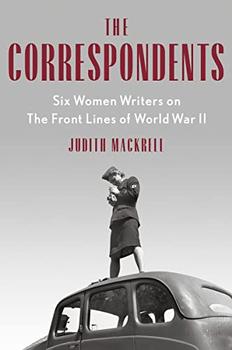Summary | Excerpt | Reviews | Beyond the Book | Readalikes | Genres & Themes | Author Bio

Critics' Opinion:
Readers' Opinion:
First Published:
Nov 2021, 464 pages
Paperback:
Feb 2023, 480 pages
 Book Reviewed by:
Book Reviewed by:
Kim Kovacs
Buy This Book
Sigrid was a tiny blonde scrap of a child for whom Herman had high ambitions. She was to be raised in the modern American way, encouraged to run freely around the countryside with the family's huge St. Bernard dog. But she was also to be raised as a European, to speak German and French as well as English, and, until she was eight, she lived in the centre of a charmed little world, petted by her parents, admired by the busy stream of friends who came to the house. Then, in 1901, that world broke apart as a sharp downturn in the Chicago economy coincided with a temporary decline in Herman's own health, and the Schultz family felt they had to pack up their home and return to Europe, where a commission awaited Herman in the royal court of Stuttgart.
The two years Sigrid spent in Germany were, for her, a period of angry exile. While her father was painting in Stuttgart, she and her mother were sent to Hedwig's family in Wiesbaden, where, for the first time in her life, Sigrid encountered disapproval. Her Jaskewitz relatives might have descended from a vivid ancestral mix of Spanish, Polish, Balkan, Russian, Central European and Jewish stock, but they'd adopted the mindset of snobbish, provincial Germans. They'd never cared for Herman and they greatly disliked the "fresh" American ways which he'd allowed his daughter to develop. Sigrid was thus sent away to Munich, "to a school for little princesses," and, missing her parents, mocked for her "Yankee" accent, she turned from petted child to aggressive little waif.5
Years later, she recalled that she'd never hated that school more deeply than when news filtered through of her father's favoured position at court, and "suddenly the teacher became so nice and all the little girls wanted to carry my books home."6 But, once Herman had fulfilled his commission, he was able to move his family to Paris, and there Sigrid flourished. She attended an excellent lycée, she had teachers to develop the sweetly melodious voice that she'd inherited from her great-grandfather Joseph Jaskewitz, a former director of the Wiesbaden Opera, and she finally got to meet her father's Norwegian family. They were ebullient, "crazy"—and she adored them, just as she adored Herman himself. But the most charmed hours of her life were the weekly lunches with her father, when he introduced her to Parisian restaurants, taught her about good food and wine, and recounted the stories of when he'd been a nineteen-year-old dreamer and had bicycled all the way from Norway to Paris to become an artist.
To Sigrid, Herman seemed marvellous; he was funny, flamboyant, gallant, and he could light up a room with his anecdotes. "He never lost the faith that life was thrilling," she wrote, "and always knew how to make others share his joy." It was only as she reached puberty that she realized how promiscuously Herman was spreading that joy; and while she would loyally excuse his philandering—"Poor man, he couldn't help it the way women were running after him"7—she could see the pain it caused her mother. Later, she would admit how badly she was affected by these dark sexual ructions—"I was really scared of marriage"—and in her troubled, confused state, the teenage Sigrid was also starting to worry about her parents' finances.8
Herman's career had remained volatile, boomeranging between celebrity and penury, and it had become apparent to Sigrid that neither of her parents had any talent for managing money. Hedwig, girlishly pretty and guileless, had never mastered the art of the household budget, while Herman, a man always hoping for better times, could squander lavish sums in a restaurant, even when there were only scraps in the larder at home. At one point, they were living in a studio on the Place Pigalle, a "ramshackle, terrible and colourful district," and, noting the squalor of other failed artistic careers, Sigrid studied to become the watchful adult of the family, teaching herself to cook and attempting to practise small domestic economies.9
Excerpted from The Correspondents by Judith Mackrell. Copyright © 2021 by Judith Mackrell. All rights reserved. No part of this excerpt may be reproduced or reprinted without permission in writing from the publisher.





The Flower Sisters
by Michelle Collins Anderson
From the new Fannie Flagg of the Ozarks, a richly-woven story of family, forgiveness, and reinvention.

The House on Biscayne Bay
by Chanel Cleeton
As death stalks a gothic mansion in Miami, the lives of two women intertwine as the past and present collide.

The Funeral Cryer by Wenyan Lu
Debut novelist Wenyan Lu brings us this witty yet profound story about one woman's midlife reawakening in contemporary rural China.
Your guide toexceptional books
BookBrowse seeks out and recommends the best in contemporary fiction and nonfiction—books that not only engage and entertain but also deepen our understanding of ourselves and the world around us.